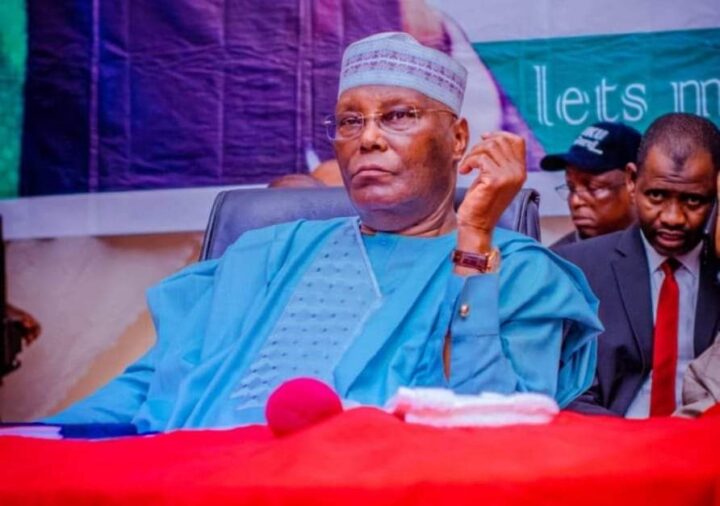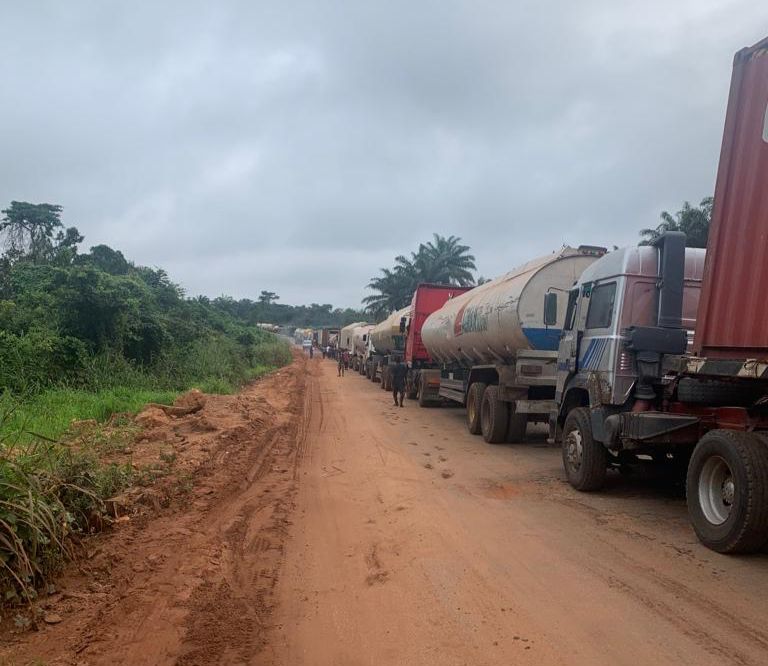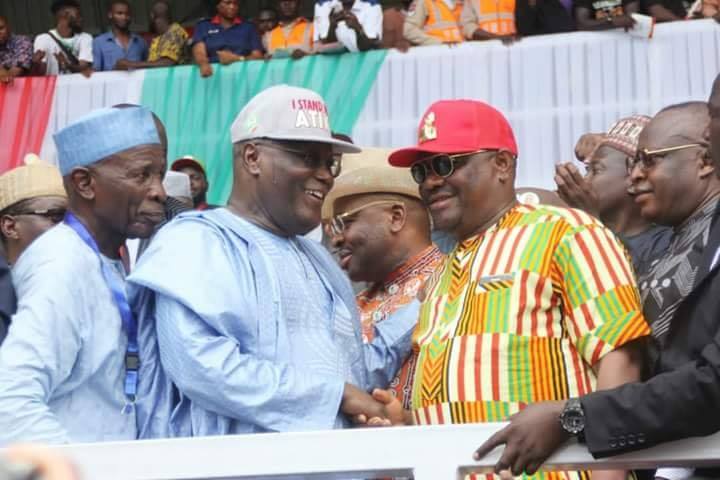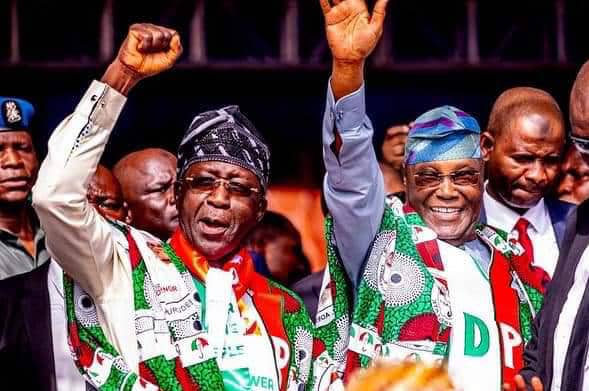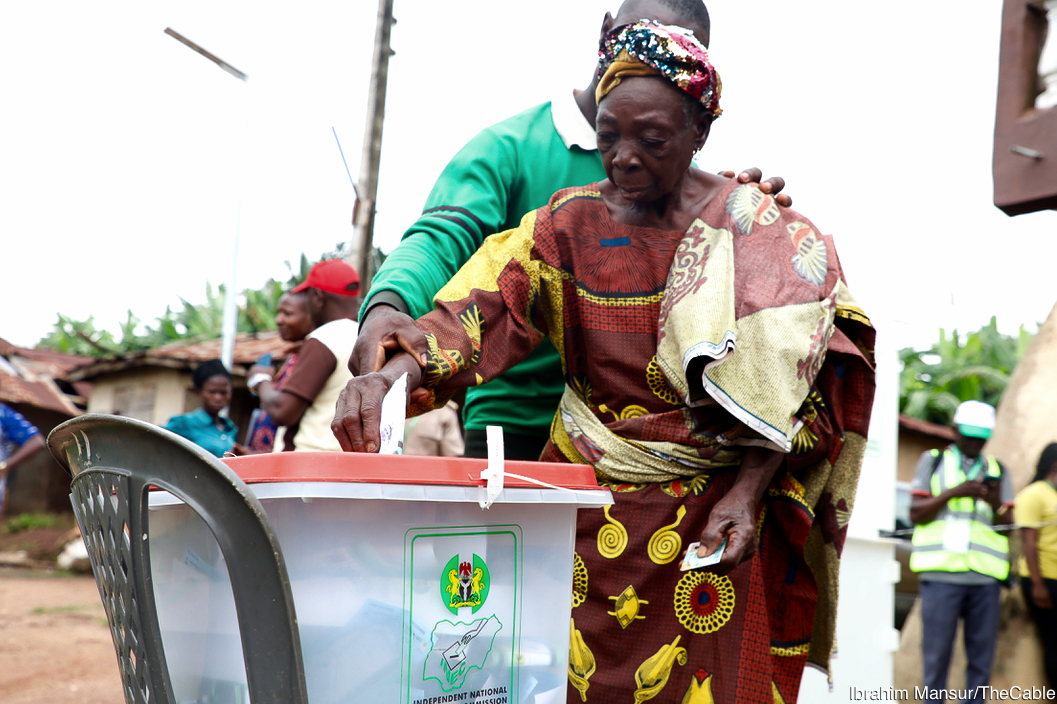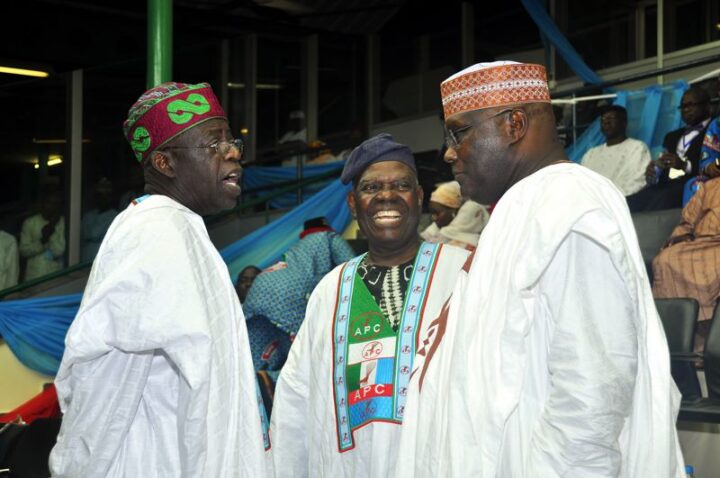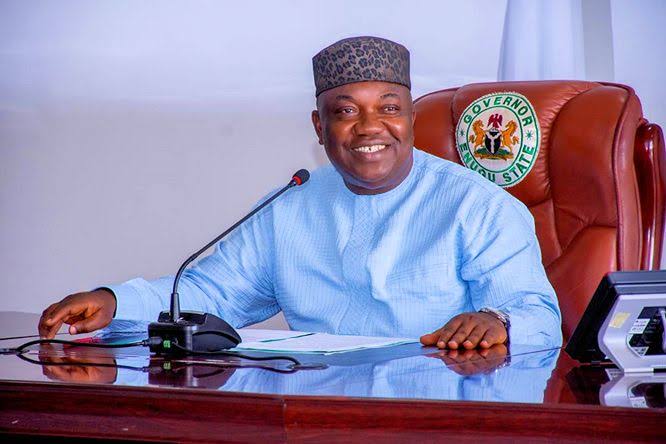What do they say about karma again? Abubakar Atiku, the presidential candidate of the People’s Democratic Party (PDP), is being served, in the lingo of Nigerian young people, a delicious breakfast –- heartbreak — by Governor Nyesom Wike and his supporters. Wike and co have been implacable since the contentious presidential primaries that saw Atiku emerge as the candidate ahead of the governor of Rivers state.
Team Wike has weighed its options carefully, meeting with rival presidential candidates, granted incendiary media interviews, and hosting midnight meetings all in the bid to get the national chairman of the PDP, Iyorchia Ayu, an Atiku’s acolyte from his same northern region to step down.
Despite repeated overtures from Atiku and the party’s hierarchy, the call for Ayu’s resignation has remained loud and persistent from Team Wike. The implication is that they would not support Atiku’s presidential candidacy unless this concession is granted. But, the chairman appears not to have any intention of quitting, thereby causing a serious headache for Atiku.
This impasse is significant as it is capable of upending the ambition of serial presidential contender and loser — Atiku. This is where the irony lies. In the past, Atiku was often the aggrieved one, the person likely to leave the PDP just before or after its presidential primaries to team up with rival politicians to challenge the party. Now, it appears karma is at work as he is being served the same measure he dealt the party in the past. Even though Wike and his supporters have stated that they would not leave the party, the impact of their disenchantment may be as serious as leaving as it would in all certainty lead to Atiku’s comprehensive loss.
Advertisement
Atiku defected from the PDP around the 2007 and 2015 general elections. On both occasions moving to rival parties to vie for the presidency. His and other strong PDP members’ defection from the party around the 2015 elections was particularly consequential as it led to its defeat in the presidential election of that year. He subsequently returned to the PDP, to win its presidential ticket in 2019, before losing to the incumbent President Muhammadu Buhari in the general elections.
Now a 76-year-old gerontocrat, this is Atiku’s best and last chance to be president but it seems very doubtful that he would be anywhere near Aso Rock in May 2023. Outside the challenge posed by Governor Wike, Atiku, of the three major presidential candidates, is the least invested in the south with the majority of his former southern supporters jumping the PDP’s ship for Peter Obi’s Labour Party.
I find that very instructive because Atiku and his affiliates such as Raymond Dokpesi campaigned for PDP’s presidential ticket on the basis that it was only he, a northern Muslim, that can win the presidential election for the party. Now that he has the PDP presidential ticket in the bag, it is doubtful that he can win the 2023 presidency without active and substantial support from the south.
Advertisement
I made the argument before the PDP primaries that Atiku’s claim was hogwash and not only disingenuous but insulting to the southern demography that is about half of the nation’s voting population. I was right as the PDP is bleeding in the south and not even sure of a northern bloc vote as all the four major presidential candidates (including NNPP’s Rabiu Kwakwanso) have substantial support from segments of the northern population. The ruling All Progressives Congress (APC) is the biggest party in the north, where it has a significant majority of the elected officials: governors, lawmakers, and other major political players, including the president. If they hold the line, the APC is likely to win the region convincingly. Kwakwanso is also a big player in the north, especially in the Kano area. Northern Christians may have sympathy for Obi, the Labour candidate and the only Christian with a reasonable chance in the race.
It is doubtful where Atiku’s big votes will come from. With or without Wike, the PDP has been damaged severely in the south. It is uncertain that even if Ayu concedes and resigns, Wike and his team can influence southerners to vote for Atiku in the same numbers they did in 2019. The main issue which is about zoning, inclusion, and equity are still outstanding with the Atiku candidacy.
After the eight-year rule of President Buhari, who is in no way a champion of inclusion and equity, southerners are right to fret about the north retaining power. So for Atiku, he should have quickly resolved the Ayu issue, a small concession, considering what is at stake, but he left it to fester and now there may be no way out for him. Even more troubling for him and the PDP, Wike’s influence is not limited to the south as he has substantial support from some key northern PDP leaders. These include loyalists such as the governor of Benue state, Samuel Ortom; former Plateau state governor, Jonah Jang, and former minister of information, Jerry Gana, amongst others. These Wike’s loyalists are unlikely to throw their weight behind Atiku unless the Ayu challenge is resolved, severely impacting negatively his chances of running a winning presidential race.
It is somewhat surprising that Wike, a relatively new entrant into national politics, is the albatross of Atiku, an old war horse in the game. But Wike’s influence in the PDP has been rising since 2015 when the party lost the presidential election and became the main opposition. He played the role of party financier, providing the funds and strategic support for party members involved in legal cases or contesting elections. Several governors and key party men and women, therefore, owe their allegiance to him.
Advertisement
Now, he is testing the strength he has so far gathered to the detriment of the PDP. It is a story Atiku is well aware of; especially, its tragic end!
Views expressed by contributors are strictly personal and not of TheCable.
Add a comment

